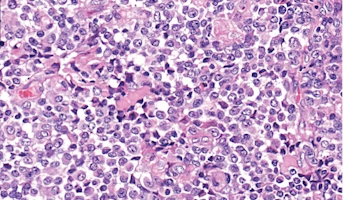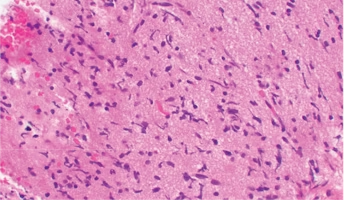Using Whole Genome Bisulfite Sequencing to Identify Novel Therapeutic Targets in DIPG and ATRT
Email Principal Investigator

Eric Raabe
CBTN Specimen
CBTN Participants
CBTN Pre-clinical Models
About this
Project
Diffuse intrinsic pontine gliomas (DIPG) and atypical teratoid rhabdoid tumors (ATRT) are epigenetically driven diseases with poor outcomes. Epigenetically driven means the growth and development of these tumors is driven by changes to gene expression that are not related to changes to DNA itself. The lack of druggable mutations and the cancer stem cell characteristics of these tumors are barriers to identifying drug targets, and new therapies to address these cancers are desperately needed. Recent work in a variety of cancer types, including ATRT and DIPG, has pointed to a critical role of epigenetic dysregulation such as altered DNA methylation. DNA methylation is the process by which methyl molecules are added to DNA molecules. Preliminary evidence confirms increased changes in DNA methylation as a fundamental property ATRT and DIPG. Researchers hypothesize that analysis of the genomic targets and biological pathways affected by methylation changes will identify gene regulatory networks responsible for the aggressive and therapy resistance types of ATRT and DIPG. Identifying such gene regulatory networks is critical in the search for new targets for therapy in the hardest to treat forms. The Children's Brain Tumor Network contributed to this project by providing tumor DNA and cell lines from patients with DIPG and ATRT.
Ask The
Scientists
What are the goals of this project?
Researchers will analyze genetic drivers and biological pathways associated with particularly aggressive forms of DIPG and ATRT.
What is the impact of this project?
This work could lead to the identification of new therapeutic targets for these otherwise very difficult to treat tumors.
Why is the CBTN request important to this project?
The Children’s Brain Tumor Network will provide the rare high quality specimens required to complete this research.
Specimen Data
The Children's Brain Tumor Network contributed to this project by providing tumor DNA and cell lines.
Meet The
Team
related
Histologies

Atypical Teratoid/Rhabdoid Tumor
Central nervous system (CNS) atypical teratoid/rhabdoid tumor (AT/RT) is a very rare, fast-growing tumor of the brain and spinal cord. It usually occurs in children aged three years and younger, although it can occur in older children and adults. About half of these tumors form in the cerebellum or

Diffuse Intrinsic Pontine Glioma
A presumptive diagnosis of DIPG based on classic imaging features, in the absence of a histologic diagnosis, has been routinely employed. Increasingly however, histologic confirmation is obtained for both entry into research studies and molecular characterization of the tumor.[5] New approaches with


